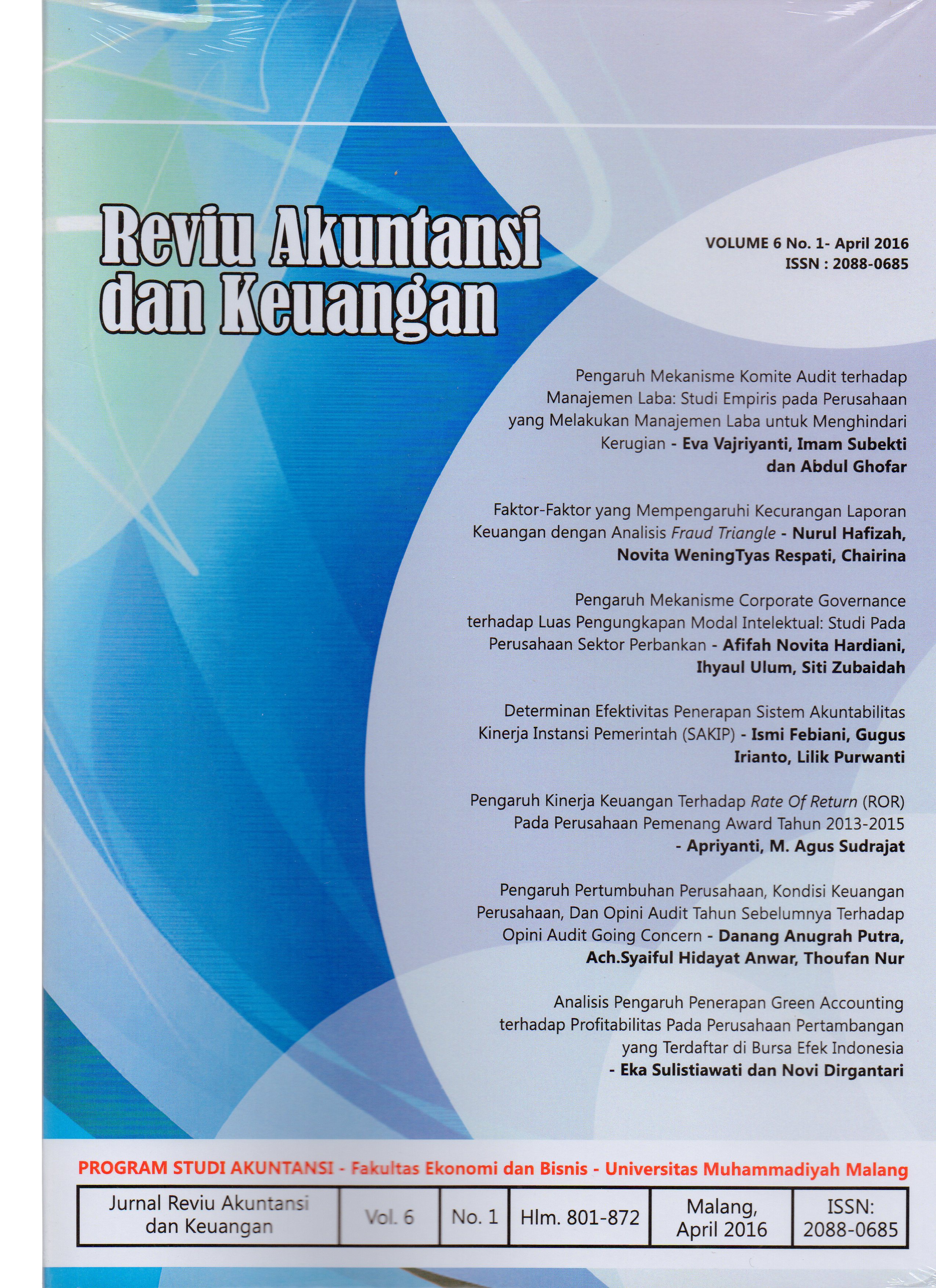DETERMINAN EFEKTIVITAS PENERAPAN SISTEM AKUNTABILITAS KINERJA INSTANSI PEMERINTAH (SAKIP)
DOI:
https://doi.org/10.22219/jrak.v6i1.5079Abstract
The purpose of this study is done to determine the level of work units, central government
support, guidance SAKIP evaluation of implementation, and quality and quantity of human
resources of the effectiveness of the implementation of SAKIP. This research is quantitative
research, collected by survey through questionnaires. The sample consisted of employees amounted
by 110 respondents. This study sampling technique using non-probability sampling with saturated samples (sampling census). The results showed that the working unit commitment and
the quality and quantity of human resources affect the effectiveness of SAKIP, while the central
government support and evaluation guidelines on the implementation SAKIP have no influence
on the effectiveness of SAKIP.
Ke ywords: Effectiveness SAKIP Implementation, Government Agencies Performance Accountability System, Employees
Downloads
Downloads
Published
Issue
Section
License

Jurnal Reviu Akuntansi dan Keuangan is licensed under a Creative Commons Attribution-NonCommercial-ShareAlike 4.0 International License.
Authors who publish with this journal agree to the following terms:
- Authors retain copyright and grant the journal right of first publication with the work simultaneously licensed under a Creative Commons Attribution-NonCommercial-ShareAlike 4.0 International License that allows others to share the work with an acknowledgement of the work's authorship and initial publication in this journal.
- Authors are able to enter into separate, additional contractual arrangements for the non-exclusive distribution of the journal's published version of the work (e.g., post it to an institutional repository or publish it in a book), with an acknowledgement of its initial publication in this journal.
- Authors are permitted and encouraged to post their work online (e.g., in institutional repositories or on their website) prior to and during the submission process, as it can lead to productive exchanges, as well as earlier and greater citation of published work (See The Effect of Open Access).










